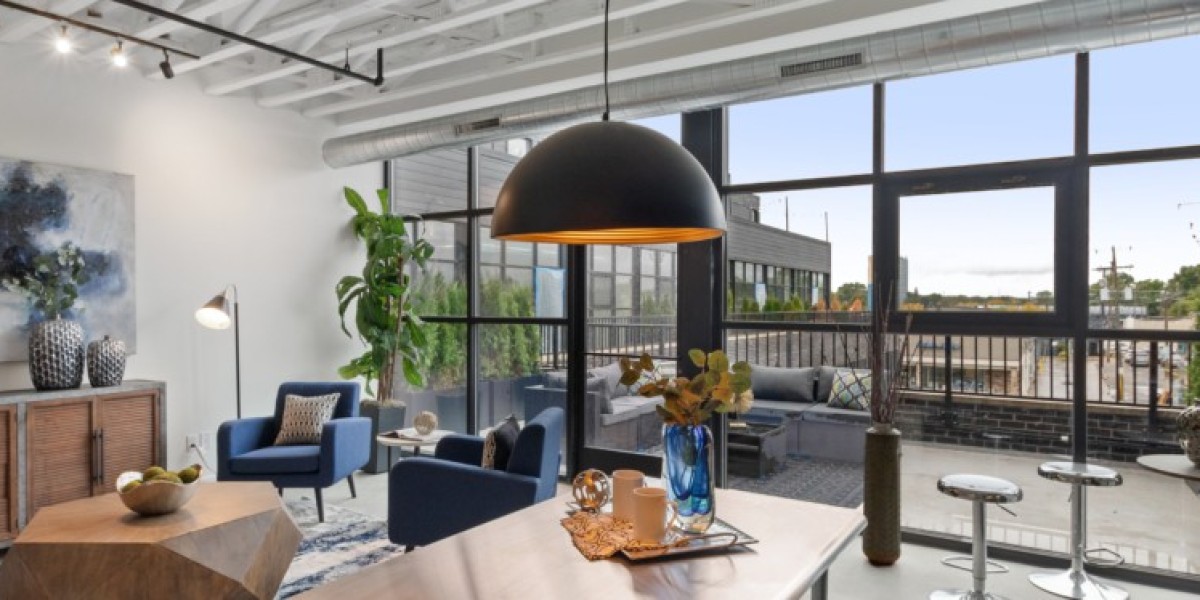When it comes to selling a home, first impressions matter. In the competitive real estate market of Metro Detroit, sellers are constantly looking for ways to make their properties stand out. One effective strategy that has gained popularity is occupied home staging in Metro Detroit. Unlike traditional home staging, which often involves empty homes, occupied staging focuses on enhancing the existing decor of homeowners while they still live in the property. In this post, we’ll explore what occupied home staging entails, its benefits, and why it’s an essential tool for selling homes in Metro Detroit.
What is Occupied Home Staging?
Occupied home staging is a process where a professional stager works with homeowners to enhance the aesthetics and functionality of their living space. This method involves making strategic adjustments to the homeowner’s current decor, furniture arrangement, and overall design to appeal to potential buyers. The goal is to create a welcoming and neutral environment that allows buyers to envision themselves living in the home.
Key Elements of Occupied Home Staging
- Decluttering: One of the first steps in occupied staging is decluttering. This not only makes spaces appear larger but also helps to create a more inviting atmosphere. Stagers often provide guidance on which items to keep, store, or donate.
- Rearranging Furniture: Stagers may recommend moving existing furniture to better highlight the home’s layout and features. Proper furniture arrangement can improve flow and make rooms feel more spacious.
- Neutralizing Decor: Personal touches and bold decor choices can detract from a buyer’s ability to envision the home as their own. Stagers often advise homeowners to tone down personal items, opting for neutral colors and decor where possible.
- Highlighting Key Features: Every home has standout features, whether it’s a beautiful fireplace, large windows, or unique architectural details. Stagers will help ensure these elements are front and center during showings.
- Freshening Up Spaces: Sometimes, small changes like fresh paint, updated lighting, or even new throw pillows can make a significant difference in how a home is perceived.
Why Occupied Home Staging is Essential in Metro Detroit
1. Competitive Market
Metro Detroit has a diverse real estate market, ranging from historic homes in areas like Corktown to modern condos in downtown Detroit. With so many options available, homes that appear well-maintained and thoughtfully presented tend to attract more attention. Occupied home staging can help sellers differentiate their properties in this competitive landscape.
2. Emotional Connection
When potential buyers walk into a staged home, they often form an emotional connection. Occupied staging allows them to see a lived-in space that feels warm and inviting. By showcasing the home’s potential as a place to create memories, sellers can appeal to buyers’ emotions, increasing the likelihood of a sale.
3. Quick Sales
In many cases, homes that are professionally staged sell faster than those that are not. In Metro Detroit, where the market can fluctuate, speed can be crucial. By employing occupied home staging, sellers can attract more potential buyers, leading to quicker offers and potentially better selling prices.
4. Cost-Effective Solution
For many homeowners, the thought of moving out before selling can be daunting and expensive. Occupied home staging offers a cost-effective alternative. Instead of investing in renting furniture and decor for an empty home, sellers can utilize their existing items with some professional guidance. This not only saves money but also allows the seller to remain in their home during the selling process.
The Process of Occupied Home Staging
1. Initial Consultation
The process typically begins with an initial consultation, where a professional stager assesses the home and discusses the seller’s goals. This meeting helps establish a vision for the staging process and identifies areas that need improvement.
2. Customized Plan
After the consultation, the stager will create a customized staging plan tailored to the home’s specific needs. This plan may include recommendations for decluttering, furniture arrangement, and decor changes.
3. Implementation
Once the plan is in place, the stager will work with the homeowners to implement the changes. This collaborative effort can be both fun and rewarding, as homeowners often gain new insights into their living space.
4. Final Touches
The stager will add final touches, such as strategically placed accessories, artwork, and fresh flowers. These details can significantly enhance the overall appeal of the home.
5. Marketing the Staged Home
Finally, once the home is staged, it can be marketed effectively. High-quality photographs of the staged space can be used in listings, social media promotions, and open houses, capturing the attention of potential buyers.
Success Stories in Metro Detroit
Many homeowners in Metro Detroit have successfully sold their homes through occupied staging. For instance, a family in Royal Oak who felt their home was too cluttered worked with a stager to simplify their decor. After staging, their home sold within weeks, attracting multiple offers. Another couple in Ferndale benefited from rearranging their living space and adding pops of color, leading to a quick sale above their asking price.
Conclusion
In the bustling real estate market of occupied home staging in Metro Detroit, offers homeowners a powerful tool to enhance their selling experience. By transforming their current space into an inviting, appealing environment, sellers can connect with buyers on an emotional level and increase their chances of a successful sale. Whether you’re planning to sell your home soon or just want to explore the possibilities, consider the impact of occupied home staging—it might just be the key to unlocking your home’s full potential.









